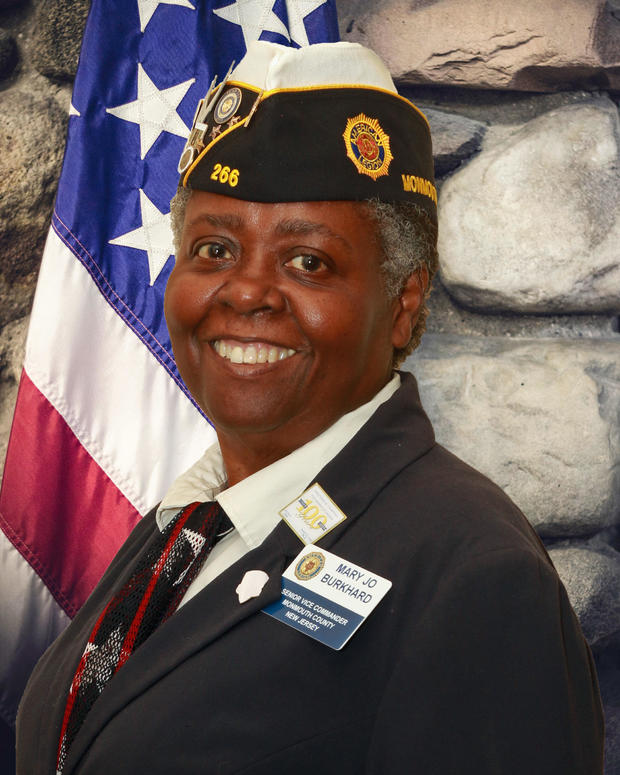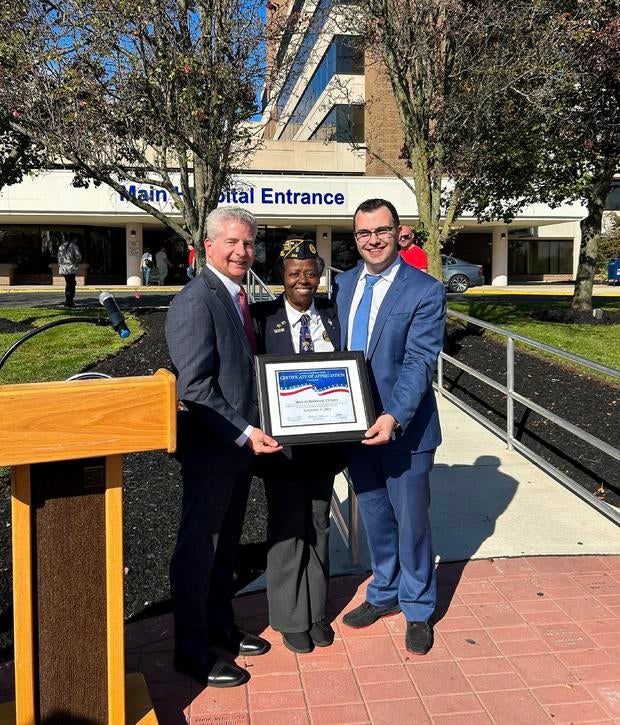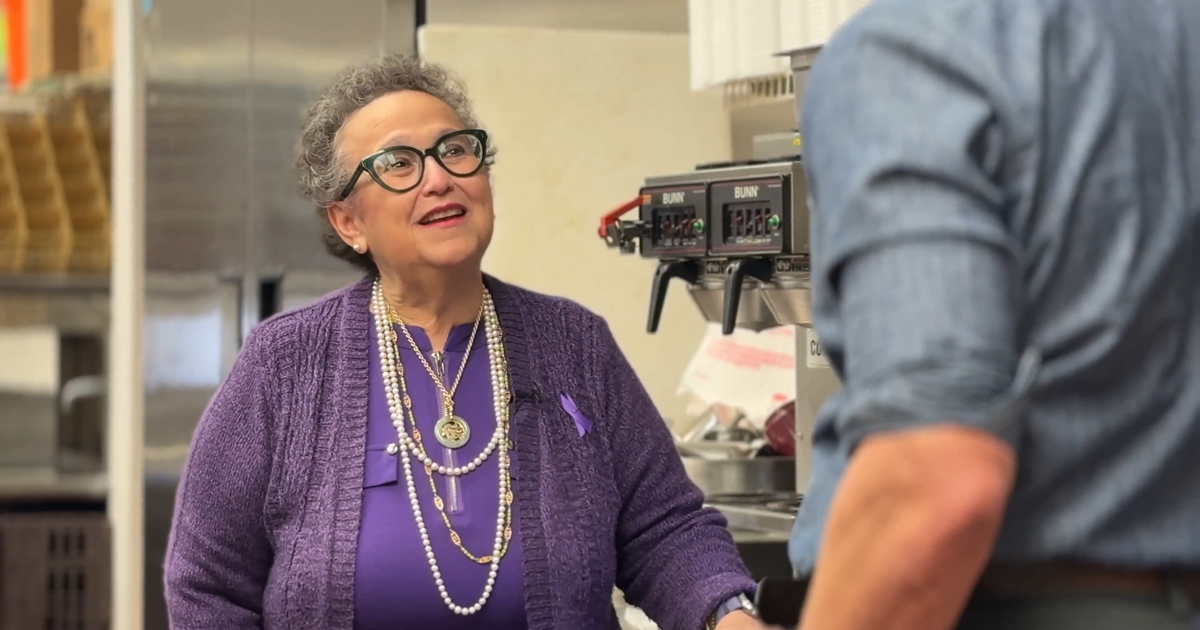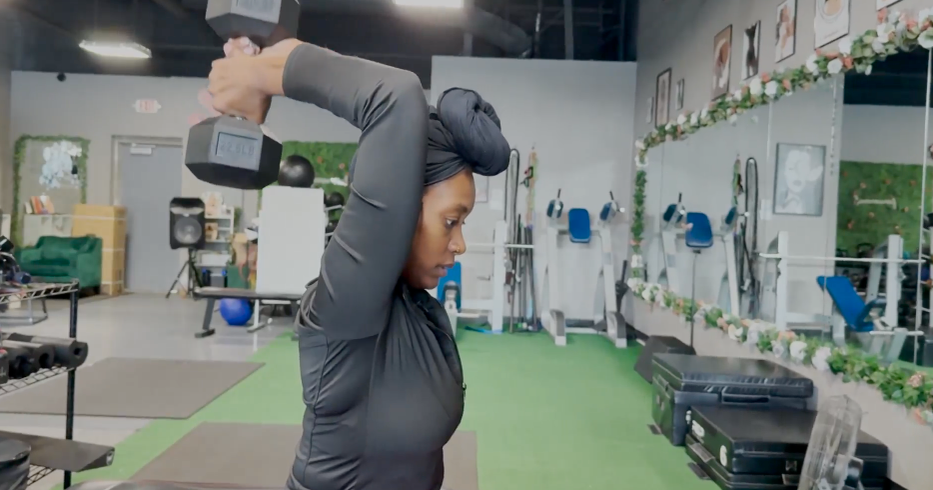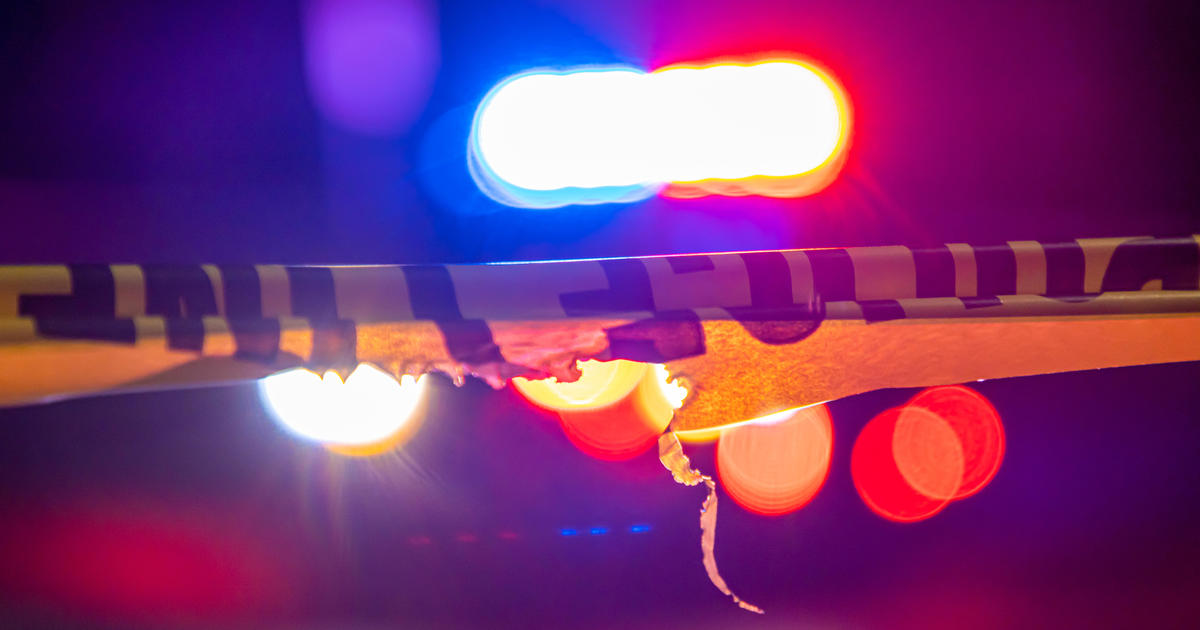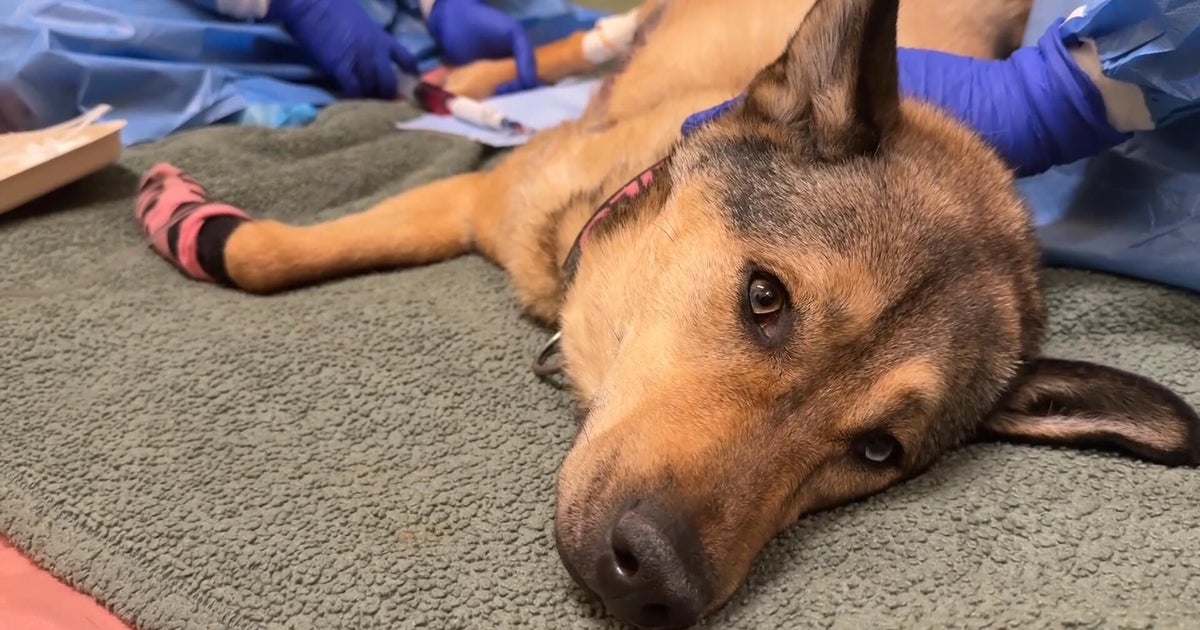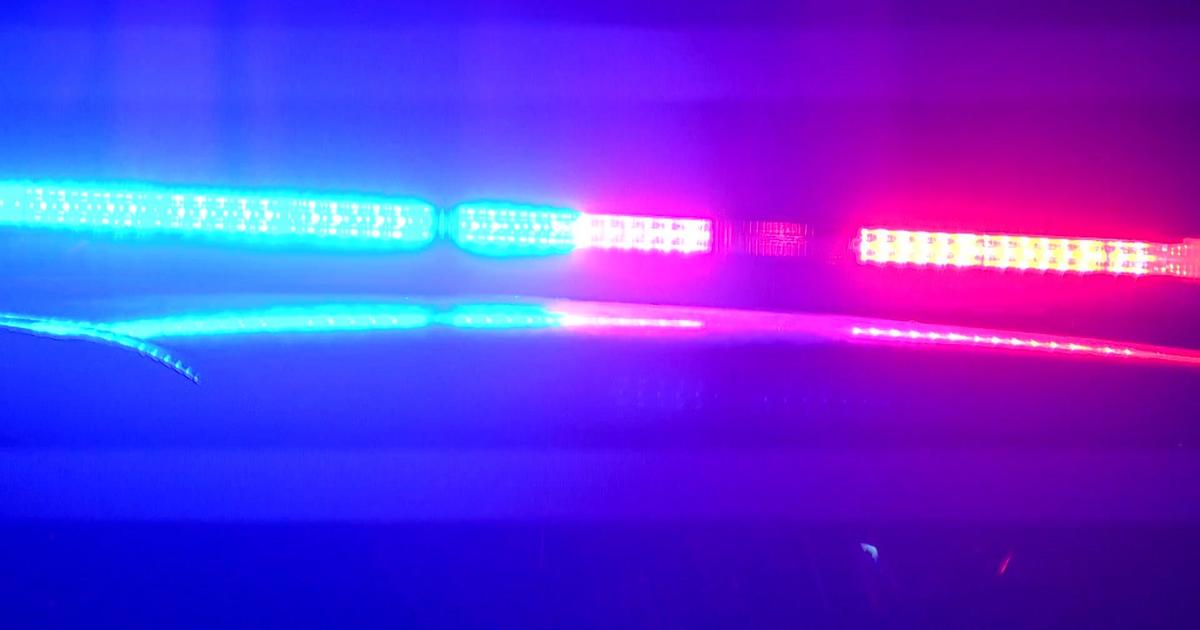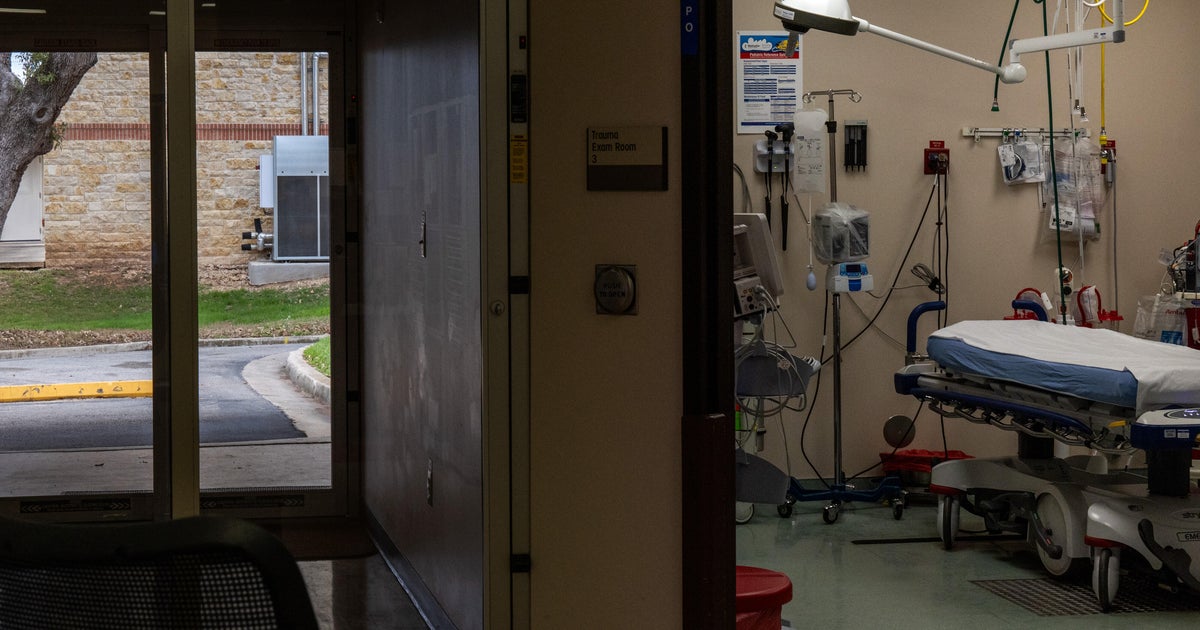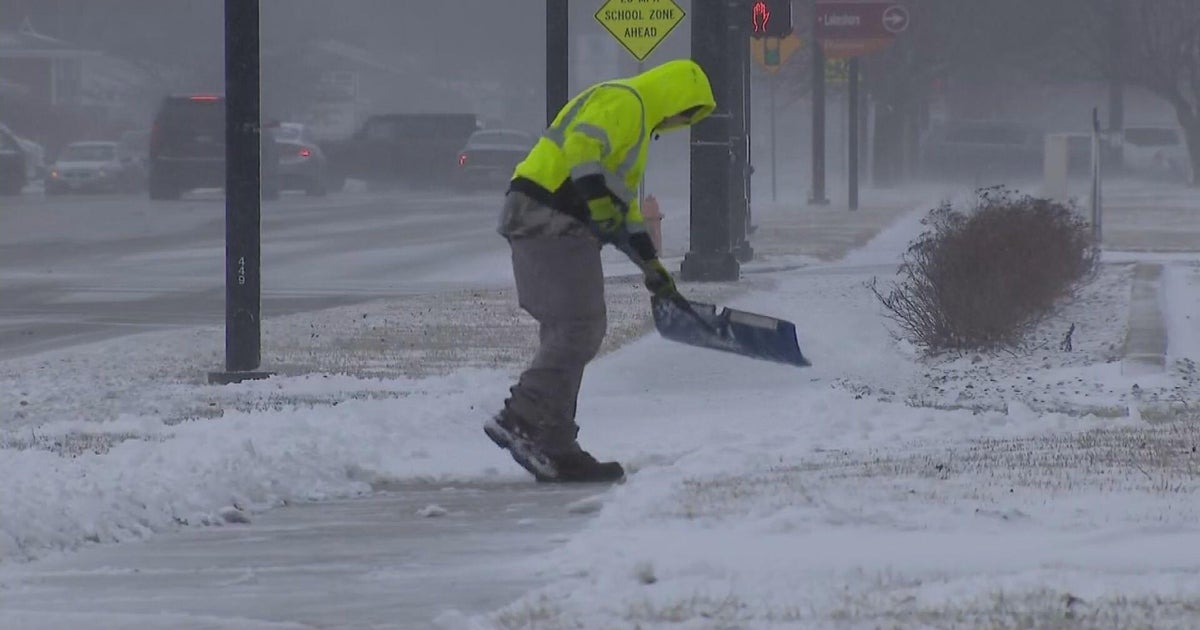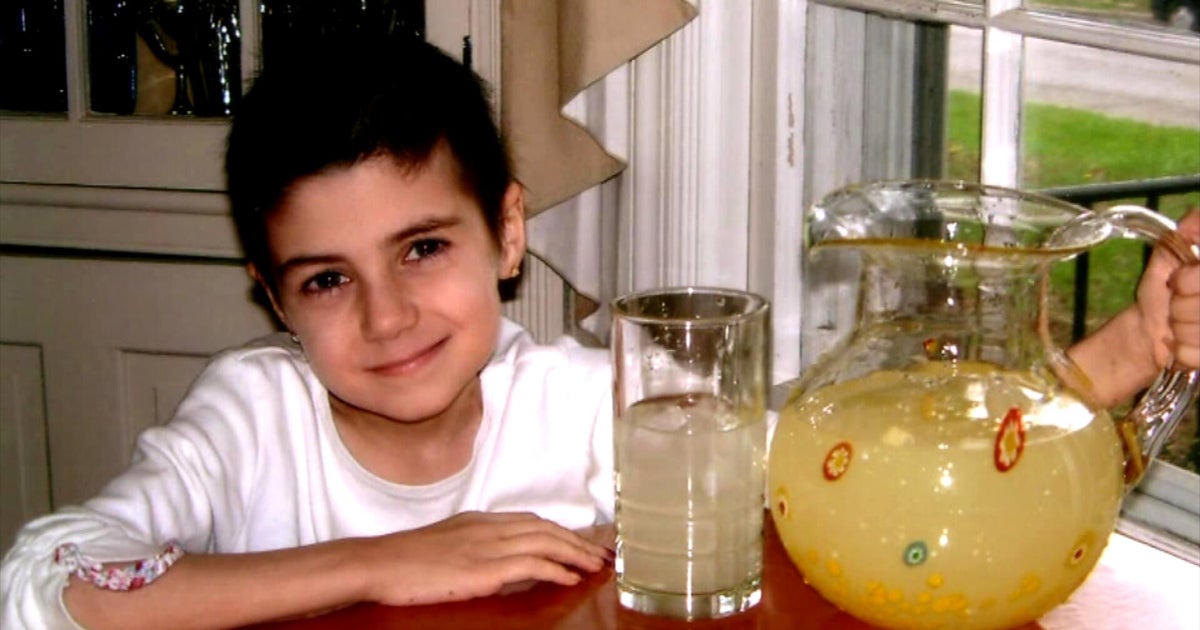A Navy veteran thought she was having a heart attack. A trip to the emergency room found something else.
While having an uncharacteristically quiet day at home, Navy veteran Mary Jo Burkhard began to feel strange symptoms that she thought could be signs of a heart attack.
The 71-year-old knew men and women had different symptoms for sudden cardiac events. Burkhard was determined not to ignore possible warning signs. The pain in her back and chest were alarming enough to go to an urgent care, and when she threw up the painkiller she was prescribed, she immediately went to the hospital.
Emergency room doctors ran tests, including a CAT scan. They found she wasn't having a heart attack — but there was a three-inch cancerous tumor on her pancreas. After two days of anxious waiting, she was diagnosed with Stage II pancreatic cancer, one of the most deadly forms of cancer.
"I was like, 'Oh my god, I'm gonna die,'" Burkhard said. Her first thoughts were of her children and grandchildren.
Dr. Alexander Itskovich, a medical director of oncology services at the Statesir Cancer Center in New Jersey, was quick to offer reassurance. Her cancer was still treatable, he said, but it would require surgery to remove the mass, and radiation and chemotherapy to eliminate as many cancerous cells as possible. It would be a long journey, and even if all went well, Burkhard would have to be closely monitored for the rest of her life. Burkhard said that the same determination that helped her in her military career helped her get through the grueling treatment schedule.
"If you can get through boot camp, you can get through anything," Burkhard said. "It changes your mindset on how you do things, it makes you stronger and makes you into a fighter. So I was a fighter. I was fighting."
Treating one of the most deadly cancers in the U.S.
Pancreatic cancer is the third leading cause of cancer death in the United States, according to the National Cancer Institute. It's "very difficult to catch this cancer early," said Dr. Suneel Kamath, a GI oncologist at the Cleveland Clinic Taussig Cancer Center who was not involved in Burkhard's care. Early symptoms typically include vague stomach upset, abdominal pain and acid reflux, which Kamath said are easy to ignore or attribute to more mild maladies.
Often, the cancer is only found when a person seeks treatment for a different issue, Itskovich said. In Burkhard's case, the pain she was feeling likely wasn't even related to the pancreatic cancer, Itskovich said, but her decision to seek medical care led to the early diagnosis. Her cancer was diagnosed as Stage II. Most people with pancreatic cancer aren't diagnosed until the disease is Stage IV, Kamath said. At that point, the cancer has spread throughout the body and treatment is unlikely to be an option.
For patients like Burkhard who can still be treated, speed is key. Just days after being diagnosed, Burkhard began chemotherapy. The sessions were every three days for more than four months. The treatment took a toll on her body: The 71-year-old often struggled with fatigue and sometimes had to call her children to help her move around the house. But it worked: Scans showed the chemotherapy had shrunk the tumor to half its size. That meant Itskovich could operate and remove the remaining mass.
During surgery, he found that the mass was attached to multiple other organs in Burkhard's body. It took over nine hours, nearly twice the length of a typical surgery, but he was able to remove the entire tumor. The surgery was followed by more chemotherapy, as well as radiation treatment. Burkhard spent several weeks in the hospital, and while the recovery from surgery was difficult, she was actually more bothered by the puree diet she had to maintain.
"It was the only thing I could eat," she said, calling the semi-liquid meals "worse than a military diet."
Enjoying life with "no evidence of disease"
After completing treatment, Burkhard underwent another round of testing to confirm that the intense regimen had worked.
"I was so scared all up through the CAT scan and waiting for them, waiting for the answer," Burkhard said. "I was just worried. I knew (Itskovich) caught everything, cut everything out, and I knew the radiation had killed the microscopic cells. I knew all that in my head, but my heart was saying 'OK, anything can happen.' That was scary."
The scans came back clear, but Burkhard's waiting isn't over yet. She will get CAT scans every three months for the next three years, and then every six months for the next two years. The disease can recur, Kamath said, and Stage I and II pancreatic cancer only has a five-year survival rate of about 44%. Because it's only been a short period, Burkhard can't be described as cancer-free, but Itskovich said she currently has "no evidence of disease."
While the coast is clear, Burkhard says she plans on enjoying her life. She's gotten back to her community service and Veterans Affairs activities. She spoke at a special flag-raising ceremony hosted in honor of Veterans Day at the hospital where she was treated. Soon, she'll travel to Indiana for a month for a long trip to see her grandkids. Whenever she's back at the hospital for scans, she tries to bring positivity to the staff who she said helped save her life.
"I hug the doctors, I hug the nurses. I hug everybody in the hospital," she said. "Everybody gets a hug."
